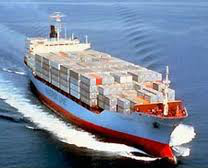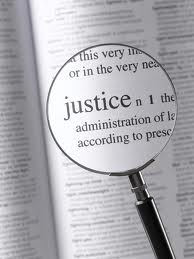General Average
A basic understanding of general average (GA) is important to a surveyor and when a GA is declared by a shipowner it can provide a great deal of survey work, often involving several surveyors acting for the different parties.
It is recommended that surveyors study the subject from one of the texts listed in the bibliography in Appendix Ε
The Marine Insurance Act 1906, in Section 66 (2) defines general average as:
“There is a General Average Act where any extra-ordinary sacrifice or expenditure is voluntarily and reasonably made or incurred in time of peril for the purpose of preserving the property imperiled in the common adventure.”
General average can best be explained by a simple example as follows.
A vessel runs aground and in order that she may complete the voyage and deliver her cargo to destination she engages a tug to refloat her, a GA expenditure, and also jettisons her deck cargo to reduce her draught and assist refloating, a GA sacrifice.
As a consequence, the shipowner and the cargo owners, other than the owner of the jettisoned deck cargo, benefit by the completion of the adventure. It is equitable therefore that the costs or losses should be at least partly reimbursed by contributions from those who have benefited.
The contributory value of the salved property is assessed and the appropriate payments made to those who suffered the loss.
Surveyors will usually be appointed by cargo interests, sometimes one to act for all but often separate ones for each consignment. In addition the shipowner, on the advice of the average adjuster, will appoint a general average surveyor who acts “in the general interest”.
The GA and cargo interests’ surveyors should work together and attend joint surveys. The information they seek is basically similar but the use to which the information is put is different.
The GA surveyor’s information is compiled into a comprehensive report covering each bill of lading and provides the basis for considering the contribution of each of the bill of lading holders to the general average fund, together with the losses suffered by each and for which they seek recovery. This report, together with other information, enables the average adjuster to complete his GA adjustment in due course.
The cargo interests’ surveyor completes his report to enable each individual claim under an insurance policy to be adjusted and paid for particular average. It also serves as a confirmation of the basis of the general average contribution or settlement in respect of the cargo.
In all cases, it is important to record full details of the condition of each parcel of cargo stating the cause of damage where any has been suffered. Separate records should be kept of cargo damaged or lost, as under:-
Jettisoned. This may occur before the cargo surveyor’s arrival and it may not be possible for him to record it. He can make enquiries about it however.
Discharged, lightered or warehoused and loaded, noting if damage had occurred before or during the operation.
Discharged at destination.
Rule III of the York Antwerp Rules 1974 states:-
“EXTINGUISHING FIRES ON SHIPBOARD”
Damage done to a ship and cargo, or either of them, by water or otherwise, including damage for beaching or scuttling a burning ship, in extinguishing a fire on board the ship, shall be made good as general average; except that no compensation shall be made for damage by smoke or heat however caused”.
As a consequence if damage is caused by fire it is usually necessary that the damage be recorded in separate categories depending upon the specific cause, as under: –
a) Fire
b) Water and / or other means of extinguishing the fire.
c) Smoke
d) Fire and water, including cargo touched by fire. A division needs to be made between the extent of damage caused respectively by fire and water.
e) Smoke and water etc. A separate estimate is required.
f) Fire and smoke, percentage of smoke damage to be estimated separately.
g) Heat/scorching and water etc. percentage of heat/scorching to be stated separately.
The object of the above is to determine the value of the losses which can be claimed in general average. Some of the losses e.g. fire damage, are caused by the casualty but water damage in extinguishing the fire is caused in the GA act.
The GA surveyor will be required to oversee and advise on the discharge, storage and reloading of any cargo and to keep accurate records for his report on all cargo handled, with comments on any damage sustained by cargo during cargo operations. His report will include all items 1-7 above together with its ultimate disposition including sale or other disposal.
Where cargo arrives damaged the gross sound market value on the last day of discharge, as well as on the date of compromise or sale, will be required. The importance of gross sound values and gross damaged values in claim adjustments is explained in some detail in Chapter 9, and it is important to consider both of these values on the date of the sale or compromise for a proper comparison of ‘like with like’ to be made.
Where goods arrive “in specie” but with marks extinguished and unable to be delivered to the rightful consignee, they will have to be disposed of by tender and their value determined and paid into the GA fund. The same will apply, of course, when the goods have lost their specie.
Where practical, damaged cargo should be reconditioned as may be necessary and sent forward to destination but if considered unfit for forwarding then it should be sold promptly and the maximum residual value realized.
The general average surveyor, as agent of the shipowner, may be required to act as an agent of necessity. In the past he enjoyed a good deal of implied authority to do so but modern communications have overcome many of the difficulties of contacting cargo owners and GA surveyors are now expected to make every reasonable effort to identify and contact cargo interests so that they can make their own decisions, or can at least be consulted.
In addition to his cargo duties, the general average surveyor may be required “in the general interest” to survey the vessel, if this is within his competence, in the event of it having been damaged as a consequence of a general average sacrifice. In practice, since the two skills are not necessarily compatible the hull surveyor may have to be a different person but he also acts “in the general interest”.
Both the GA surveyors and the underwriter’s surveyors report should contain copies of notes of protest, log extracts and masters reports. The former should show details of shifting and discharge of cargo at the port of refuge where it is necessary to allow for repairs to be carried out for the common safety. The latter should note if this has been carried out but need not be concerned with the detail.
Takis Kalogerakow





